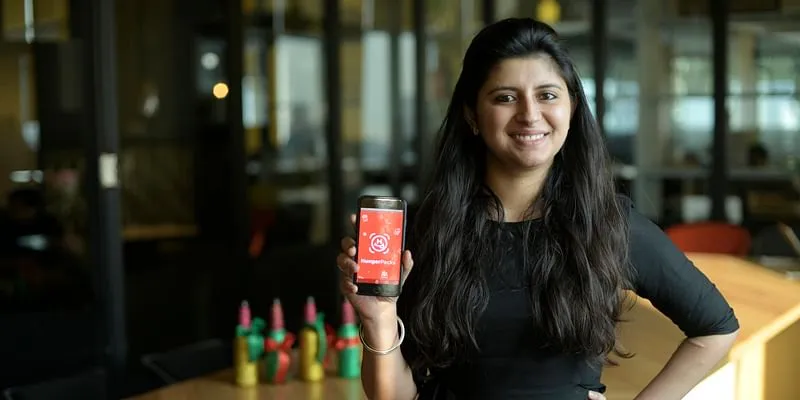This startup is helping millennials keep a check on what they eat
Founded in 2018 by Alisha Nanda, Hungerpacks wants to help people make smarter and informed choices while buying packaged food.
After a long day of work, Alisha Nanda would look forward to grocery shopping and cooking for herself. She would then write about her tryst with food at home and about the world cuisines on her food blog.
“I used to buy these unique ingredients from the big box stores. Usually, they are not available anywhere else and you have to buy the whole bottle. That is when it struck me that we can find everything about a restaurant or a gadget that you are going to spend money on, but none on packaged food that we buy on a daily basis,” she recalls.
To address this gap and help consumers make better decisions, Alisha founded HungerPacks – a food media, review, and research platform – in 2018. On its website, all products are rated based on four parameters – taste, nutrition, value for money, and packaging.

Alisha Nanda, Founder of HungerPacks
While the platform promotes healthy eating and lifestyle, the entrepreneur believes that it shouldn’t come at the cost of using plastics which cause harm to the environment, the wildlife, and even our physical and mental well-being. The startup encourages brands to adopt green packaging and not take the easier way out with plastic sachet packaging.
Partnership and growth
So far, the platform features more than 500 products and over 600 reviews from nutritionists, dieticians, chefs, and others like callisthenics experts and sports personalities for whom “food intake plays an important role and matters at the molecular level”. Several customer reviews are also included with the belief that user experience is equally important. Alisha says a mobile application is currently being tested.
With four members in its core team, the startup has partnered with several selling platforms like Wellcurve and Nature’s Basket, as well as food brands like Epigamia, Pro Nature Organic Foods, and Snacked, among others.
The entrepreneur was selected for the Women Startup Programme and incubated at NSRCEL at IIM, Bengaluru, where she received her initial funding of Rs 4.5 lakh. The funds were spent on conducting detailed product testing and research on what parameters matter for different food packages with around 450 participants. She further invested close to Rs 4 lakh, and now she has broken even with revenues amounting to the combined investment.
However, Alisha adds that if the lockdown had not taken place, her startup would have been profitable by now. That didn’t happen as most of the partners were unable to sell as much as they usually did at the beginning of the lockdown. But she hopes to be profitable in the next few months.
Alisha is also working on a podcast series about packaged food and trends.
A changing, healthy trend
When invited for dinner to an Indian household or a wedding, one should look forward to having at least rice, atta, and dal (the staple), among many others. This would be followed by savouring desserts like kheer and gulab jamun with abandon.
This attitude towards food may also be blamed for the dramatic increase in the number of diabetic patients that tripled from 19.4 million in 1995 to 66.8 million in 2014, as per International Diabetes Federation (IDF).
However, the new generation of millennials may not be following suit. Entrepreneur Alisha Nanda says the boundary between the consumption pattern of India and the world is gradually blurring, with more youngsters becoming conscious of eating right and healthy.
“We are consuming a lot of global food items. Understanding the food labels and ingredients is a popular practice in western countries like Australia and New Zealand, and the change is happening in India. They are more conscious than their parents,” Alisha explains.
Challenges
Undertaking an exciting journey as an entrepreneur, Alisha has juggled between taking care of the venture and her day job for the past one-and-a-half years.
A pioneer in her own right, the biggest challenge for the 32-year-old entrepreneur has been explaining the gap that she is trying to fill as an entrepreneur. The only similar platform she is aware of is the Australia-based consumer advocacy organisation called ‘The Choice’, but none closer at home in India.
Hence, Alisha says, the easiest explanation she could give was “that it is like Tripadvisor for packaged food.” Thus, getting people who believe in the niche brand was also difficult.
Post the COVID-19 outbreak, she notes that people have become more cautious of what they eat and aim to strengthen their immunity, which makes the startup’s goal and mission more relevant.
In the next few years, Alisha says Artificial Intelligence (AI) will have a huge role to play in the startup’s growth and believes that HungerPacks should evolve into a self-learning platform. More importantly, she says that the resources in the form of articles, research, and others, will remain freely accessible for all.
Edited by Kanishk Singh










